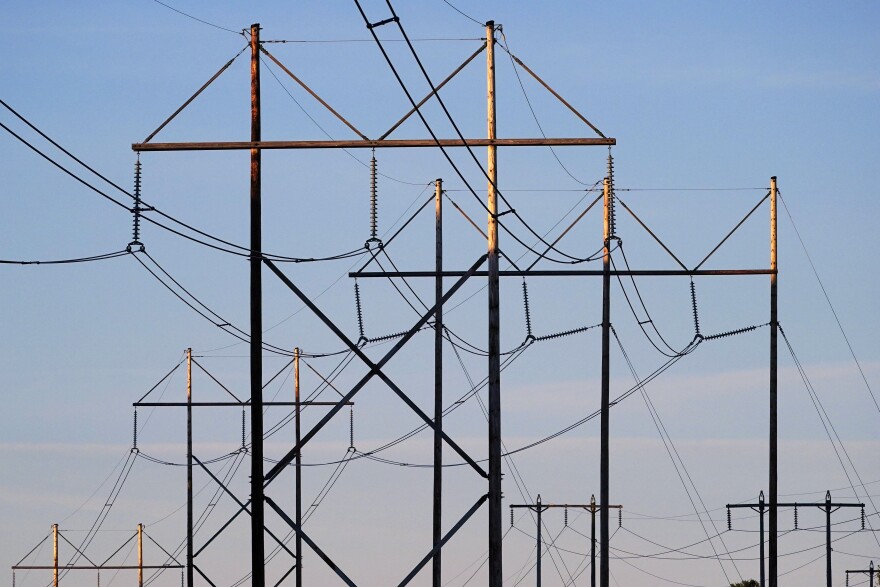Maine voters resoundingly rejected the campaign to replace the state’s two largest electric companies with a consumer-owned utility on Tuesday.
With more than half of all precincts reporting statewide, more than 70% of voters opposed the Pine Tree Power proposal that was at the center of Question 3. The Associated Press called the race a little before 10 p.m., less than two hours after polls had closed.
The push to overhaul Maine’s electric grid was, by all accounts, the highest-profile issue in an election with eight ballot questions. Critics of Central Maine Power and Versant Power had worked for years to present voters with an alternative: a nonprofit Pine Tree Power Co. run by an elected board.
But in the end, voters chose to stick with the status quo despite surveys showing high levels of dissatisfaction with the state's two largest utilities. Leaders of the Our Power campaign indicated that the debate will continue, however.
“This grassroots campaign started a really important and crucial conversation both for Maine and the nation, about the failures of our investor-owned utility system to meet our basic needs in this moment, when we need a huge investment in our grid in order to build the grid of the future, and be able to connect to clean energy and be resilient in the face of the climate crisis,” said Lucy Hochschartner, spokeswoman for the Our Power campaign. “That conversation continues and this is just the beginning for our movement."
The Pine Tree Power campaign always faced the challenge of convincing voters to go along with transforming the way electricity is delivered to most Maine residents. Supporters said a nonprofit, consumer-owned utility wouldn't have to worry about satisfying shareholders and corporate leaders.
And they predicted Pine Tree Power would ultimately save ratepayers billions of dollars in the coming decades while creating a more reliable and climate-resilient grid. But the campaign struggled to counter the tens of millions of dollars spent by CMP and Versant's parent companies as they portrayed Question 3 as too risky and too costly.
“We are grateful that Maine voters took the time to learn about this expensive and risky scheme,” BJ McCollister, campaign manager for Maine Energy Progress, one of the opposition ballot question committees, said in a statement. “Question 3 would have put Maine people on the hook for $13.5 billion, with no guarantee of lower rates or faster progress on the transition away from fossil fuels. Question 3 presented itself as a simple solution to very complex issues, and voters weren’t willing to take a chance on something as important as our state’s electrical grid."
Maine Energy Progress received roughly $15 million from Enmax, the parent company of Versant. A second opposition committee, Maine Affordable Energy, received more than $23 million from Avangrid, which is CMP's parent company.
“Maine voters did their homework, they did their research and, by an overwhelming majority, rejected Pine Tree Power,” Willy Ritch, campaign manager of Maine Affordable Energy. “They rejected billions of dollars in debt and they rejected the risk and uncertainty that came with it. It was a hard-fought campaign but now it’s over and it’s time for all of us to come together as Mainers to take on the challenges our state faces.”
By comparison, the Our Power campaign leading the fight to create a consumer-owned utility has received just $1.2 million.
Earlier in the night, Our Power campaign manager Al Cleveland accused the utilities of spreading “misinformation and fear.”
“The Pine Tree Power campaign was outspent 37-to-1,” Cleveland said. “Our own utilities used money that was fueled by our rates to interfere and lie about what consumer-owned utilities and Pine Tree Power would be. It’s really hard for any type of grassroots campaign to combat that big spending but we have thousands of volunteers across the state that have been working diligently.”



